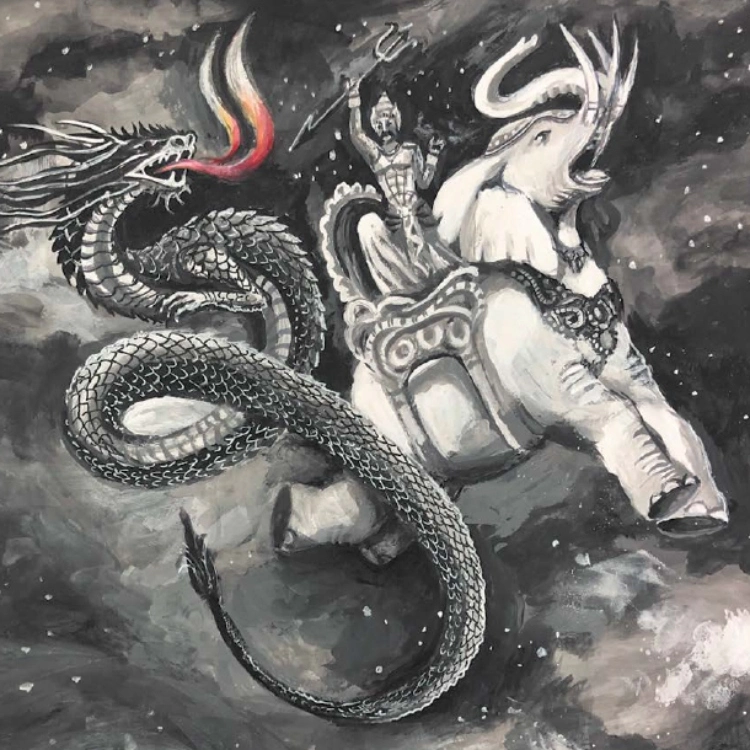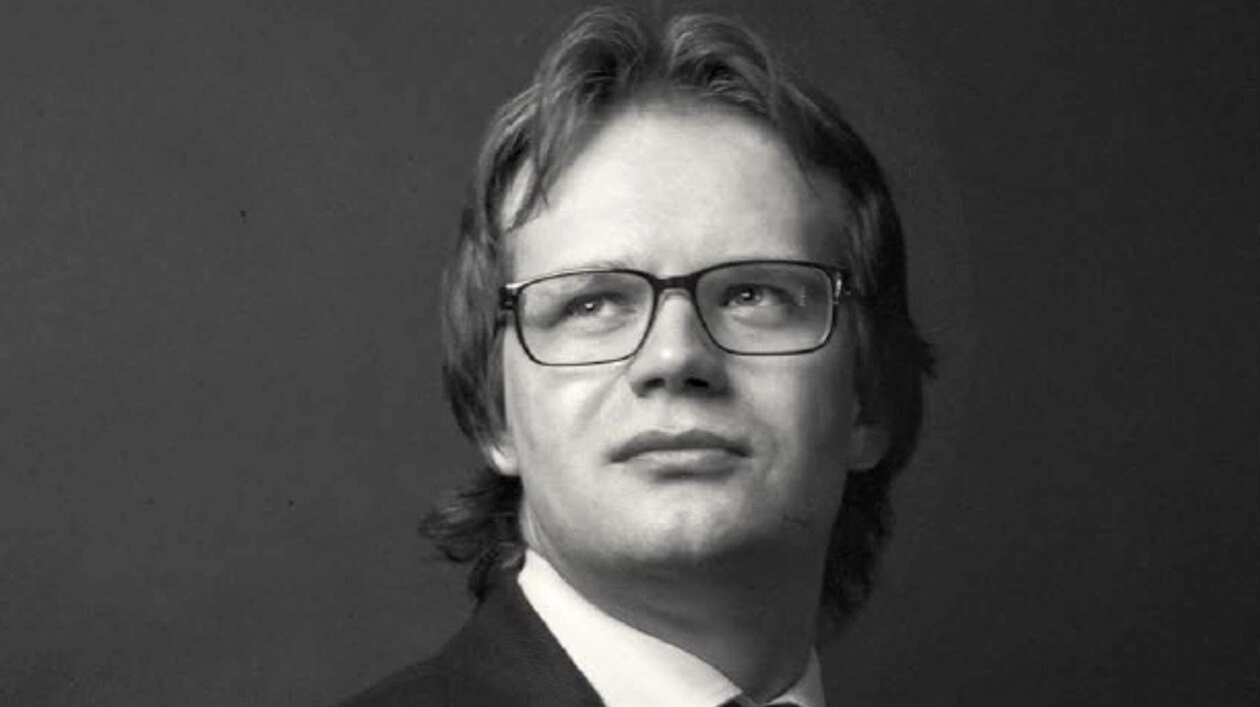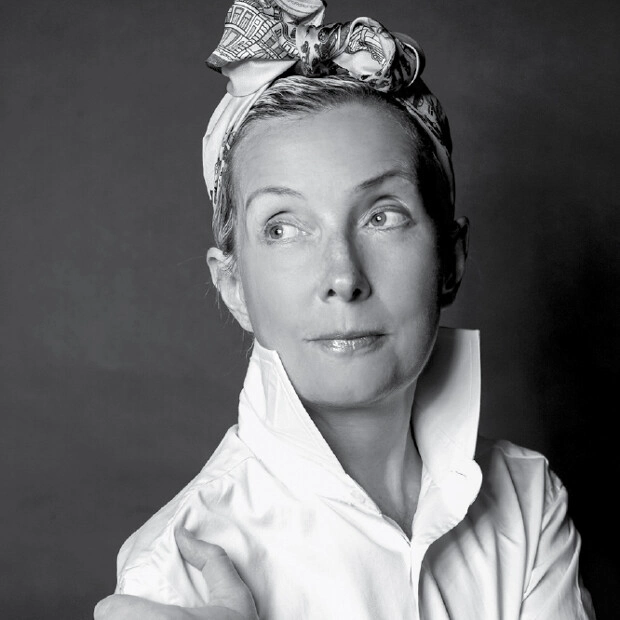Science fiction, fantasy writers, artists and programmers all over the world adore to add dragons to the plot of their computer games, pictures and books. Almighty, majestic they kind of make it special. Publicist and reviewer Vadim Veterkov tells through the story of one dragon that the essence of these mythological creatures is not mythological at all. We meet them not only in the world of fantasies. It looks like we meet them in real life too.
Dragons are hard to surprise. The smallest we meet in the western literature and legends are usually ancient, powerful, greedy and calculating beasts. The last thing they would do is get surprised. He knows what the world is and how to live. Therefore, when eaten, a couple of minutes later god Indra suddenly climbed out of the Vritra's jaws and cut off the dragon's head.
The ancient dragon Vritra is considered to be the embodiment of Chaos in Vedic mythology, the creature who either contains everything the Universe is inside of itself in "virtual" form or is guarding an object with the same qualities. Vritra is static and differs from tempestuous Chaos of the modern literature we are used to this way. Every possible happening, idea and feeling is stopped by Vritra. What a mighty beast I'd say. One can easily imagine the simple dragon's philosophy you sit steady hands on the table; I'll gobble up an unsatisfied one. And all-in-all, his philosophy worked. Well if we talk about the Universe without time, space or life. Vritra is also called as "captor of waters" since the Aries saw water as life with its flaws and inconstancy. And a mighty non-alternative Vritra was kind of supposed to live eternally but something went wrong.
There are different versions of what happened. Some say Indra drank three lakes of the sacred drink "soma" and decided to take care of the water's caption. There was a slight doze of nobility in it but actually the hero was moved by boredom. Others say that Devas were scared and not happy about the wish of Vritra to bend under himself their free essence one day. And also, his habit to harass the Goddesses without asking their permission. So there allied a conspiracy. Anyway, Indra wasn't that fast in getting Vritra down. The Snake ate the God. There might had been the end of the world but the lazy dragon yawned. In the god fighting never flip your jaws. Indra got out of it and smashed his head. Then he freed the captured waters.
As a result of this painful cosmogonic act we had a world the way we see it today.
There were not satisfied. Sometimes they mention 99 Vritra's relatives. "If not for Vritra's then whom?" "Vritra guaranteed stability!" "Remember what was before Vritra? There was nothing!" But nobody listened to them. It is well known that changes are inevitable, we cannot hold the life energy. The winner Indra will not be a saint in future. He will cheat, harass the married women, break the rules but won't become a dragon though a popular story tells so. And anyway, wrong actions will be followed by punishments, repentance or nice stories with advices how to avoid first and not pay attention to the second.
Myth is polyphonic. Vritra and Indra's case is a cos-mogonic story, mythological embodiment of the season changing, a social revolution form. American Indologist Wendy Doniger in his "Hindu Myths: A Sourcebook" writes about the limited immortality of Indian gods. They are born and die and face all of the main dilemmas of mankind. They often differ from humans in some small details and even less from demons. Nevertheless, Indi-ans see the a priori different creatures in them. Their gods are symbolic the way a man can never be no matter how "archetypal" his life is. They are actors playing roles real for us only; they are masks we see our own faces under.
The social changes are stories with the old plot. The ancient code will remind of itself if someone starts to take the characters' place even in the countries which went far from the Vedic cult. When there's a dragon appears the one who will crush it.
If we look around we see that premises take place. Extirpation of bad habits and progress in medicine made people in developed countries much more healthy than ever in history and extended significantly the ordinary life length. Kevin Spacey was considered a profession-al who had just reached his career's peak when he was caught up with retribution. He was 58. For comparison: his colleague of 20th century Humphrey Bogart was already dead by this age. His more restrained and elegant colleague Gregory Peck died in much more advanced age but he practically stopped playing when he was 60. The list can be prolonged with the people from politics, art and business.
"Working life" was never as long as today. But medical success is followed by the cult of youth. You should become successful before you become 30or die!
Digital economy succeeds in sweeping away social guarantees like limitation of working hours and child labour laws. Meaning that the day you finish the school is not any more is the day you start your career. If you want to be successful on time you should start much earlier in most of humanitarian disciplines or in business. Which in its turn leads to the early appearance of young ambitious professionals on the labour market.
It's enough to have a glance at young bloggers, designers, businessmen, scientists, its auditorium's coverage and composition and you see that they don't want methuselahs. These young professionals face the system completely filled with old employers. They are professional, energetic, active and they don't plan to leave their places. From the dragon's point of view his world is beautiful, nothing should be changed including himself.
The problem has a systemic character, few dragon's retirement won't change much, the renewal should be massive. How to make it done avoiding making lots of victims? It looks like the world itself found a proper way to do it by making life and work of competitors maximally uncomfortable by elimination of their culture itself which was not just something they are used to but which is an essential condition of their existence. The generation coming to take their place wipes away the old system. The possibility of older and stronger to harass the young and weak glorified by the poet W H Auden is of course not the only feature of the culture of this kind. The basic practices differ from region to region: some have harassment others are corruption and inequality.
One antique comment to the words of Heraclitus of Ephesus "Everything flows and nothing stands still" says that the quote is not about the flowing time but it is about ability to change in order to be your self. To keep his might and strength a dragon has to change. But will he still be a dragon in this case?







